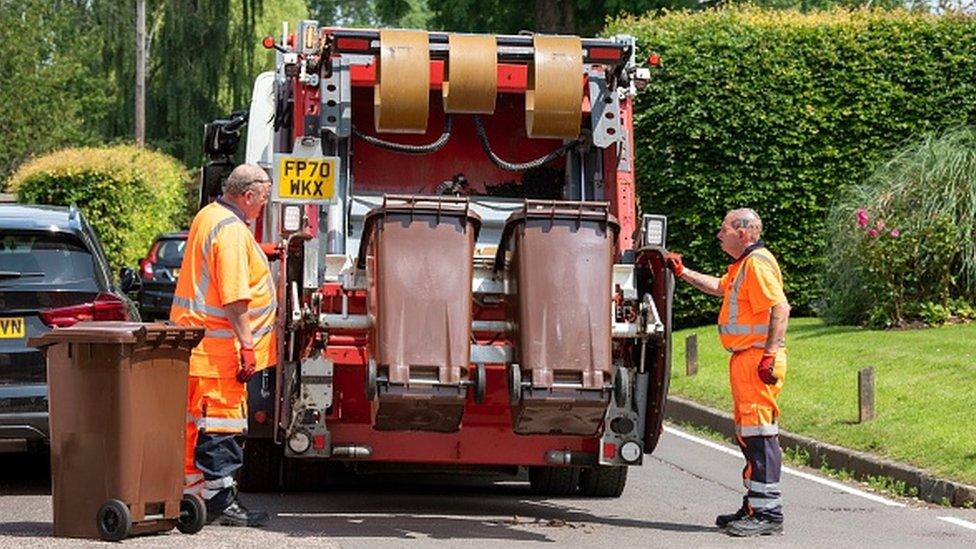Vegetable oil-powered trucks to collect food waste
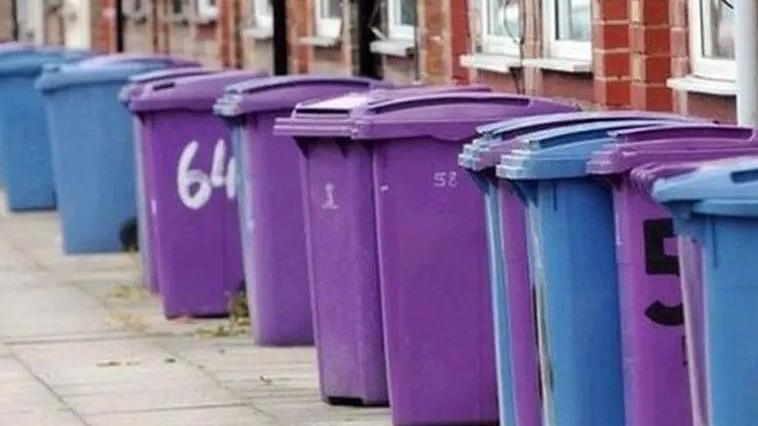
All councils will have to provide weekly food-waste collections from April
- Published
Dozens of lorries powered by vegetable oil are to be rolled out to help collect Liverpool's new food-waste bins from next spring.
In order to comply with legislation introduced four years ago, Liverpool City Council will have to provide weekly food-waste collections to every home under its jurisdiction from April 2026.
The local authority in Liverpool, which is regarded as having the second-worst recycling rate in the UK, is to sign off on plans to acquire thousands of new bins and specially-powered vehicles, to ensure they meet next spring's law change.
Plans are also being considered to develop an 80,000-tonne food-waste processing plant within the wider metropolitan region.
Last year, it was revealed that food waste makes up approximately a third of domestic waste-bin contents.
Local authority officials believe there are better ways to process food waste, and want to make it easier for people to use council recycling containers more effectively.
Ahead of the looming April 2026 deadline, the initial fleet of waste-collection vehicles will be diesel-based, according to a report due before Liverpool Council's cabinet next week, as detailed by the Local Democracy Reporting Service.
However, to minimise the carbon emissions associated with diesel vehicles, the council is proposing using hydrogenated vegetable oil (HVO) - a renewable fuel made up of vegetable oil, animal fats and other liquid food-waste material.
HVO produces 98% less CO2 than diesel and is commonly used in the haulage industry. It has already been been adopted by some refuse-collection vehicles used by Biffa Waste Management when fulfilling their Wirral Council contract.
The vehicles are understood to have an operational life of seven years, and the intention would be to move on to biogas thereafter.
Food caddies
Liverpool Council will initially order 20 vehicles, but this may increase to 36 trucks - at a cost of more than £3.3 - depending on how many households participate in the programme.
The council will spend a further £1.1m on the food-waste caddies.
Meanwhile, a cabinet report set out how the construction of a food-waste processing plant near, or close to, Merseyside could reduce council costs and create jobs.
Investigations have also been carried out to look at the potential for building and operating an 80,000-tonne (78,000-tons) food waste processing plant in the Liverpool City Region.
Consultants have recommended further work to develop a high-level business case for local treatment facilities that generate biogas and support the future transition to gas-powered collection vehicles, once the infrastructure and fuel supplies are in place.
Liverpool Council currently sends 130,000 tonnes of general waste by train to Redcar, Cleveland, where it is incinerated to generate electricity.
Get in touch
Tell us which stories we should cover on Merseyside
Listen to the best of BBC Radio Merseyside on Sounds and follow BBC Merseyside on Facebook, external, X, external, and Instagram, external. You can also send story ideas via Whatsapp to 0808 100 2230.
- Published12 April
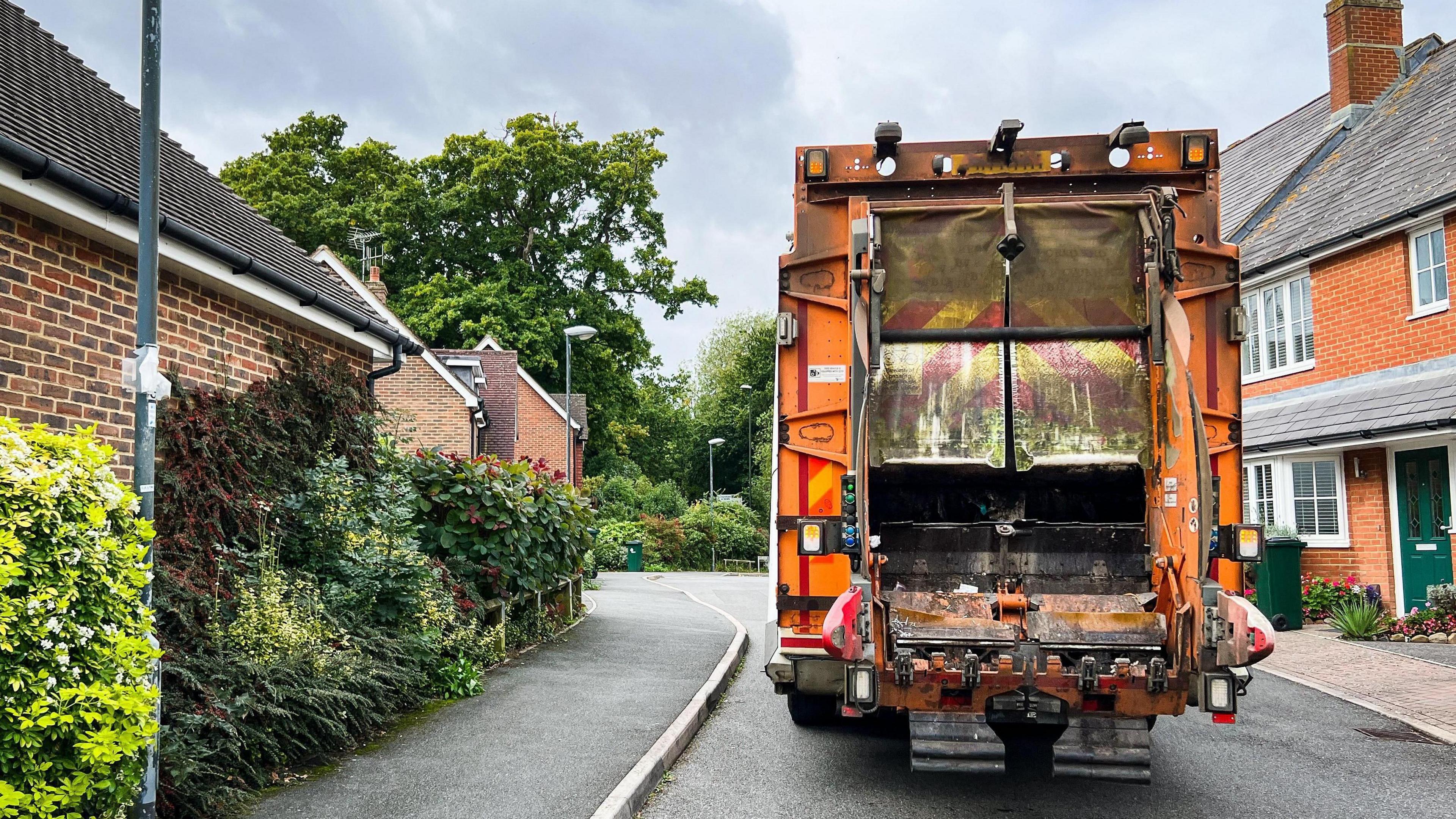
- Published14 January
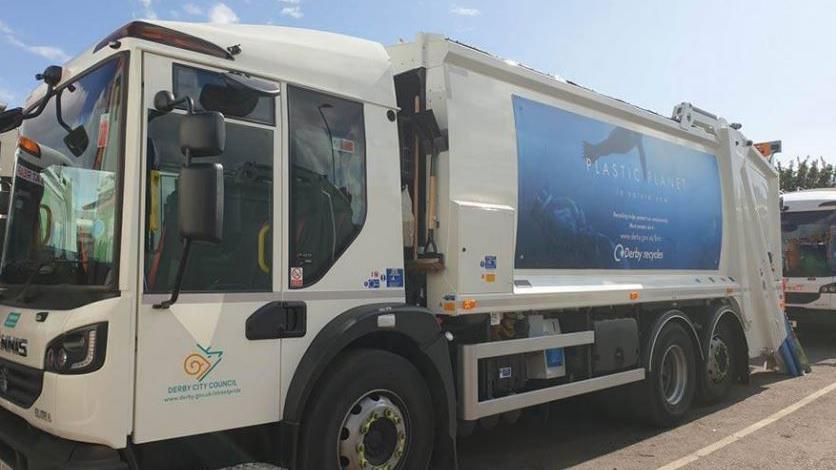
- Published5 January
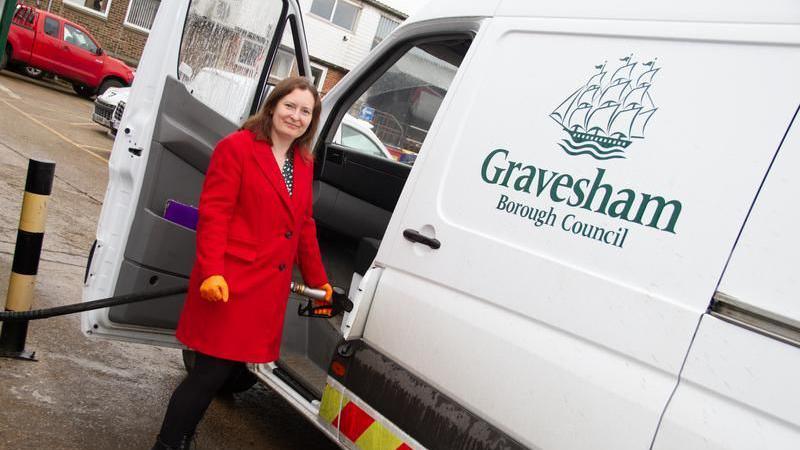
- Published8 February 2024
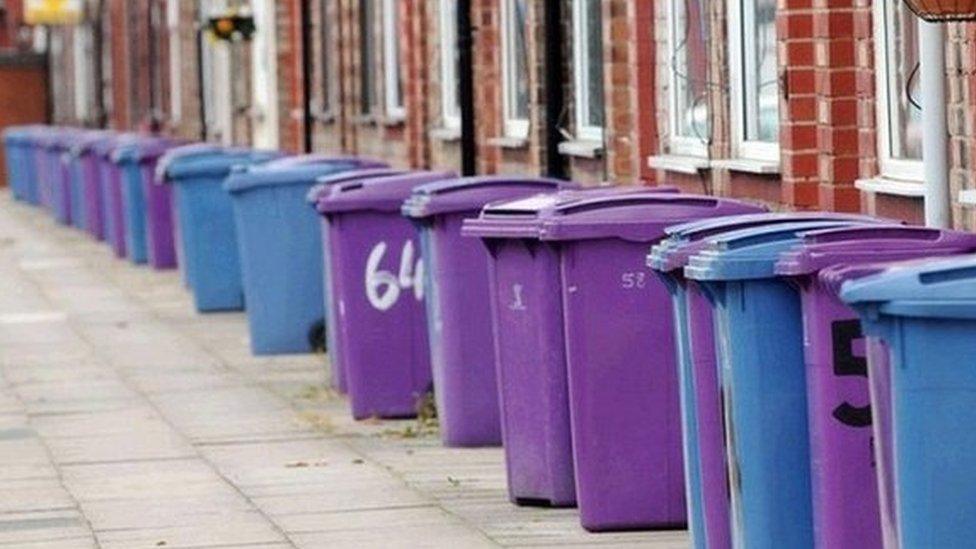
- Published21 October 2023
